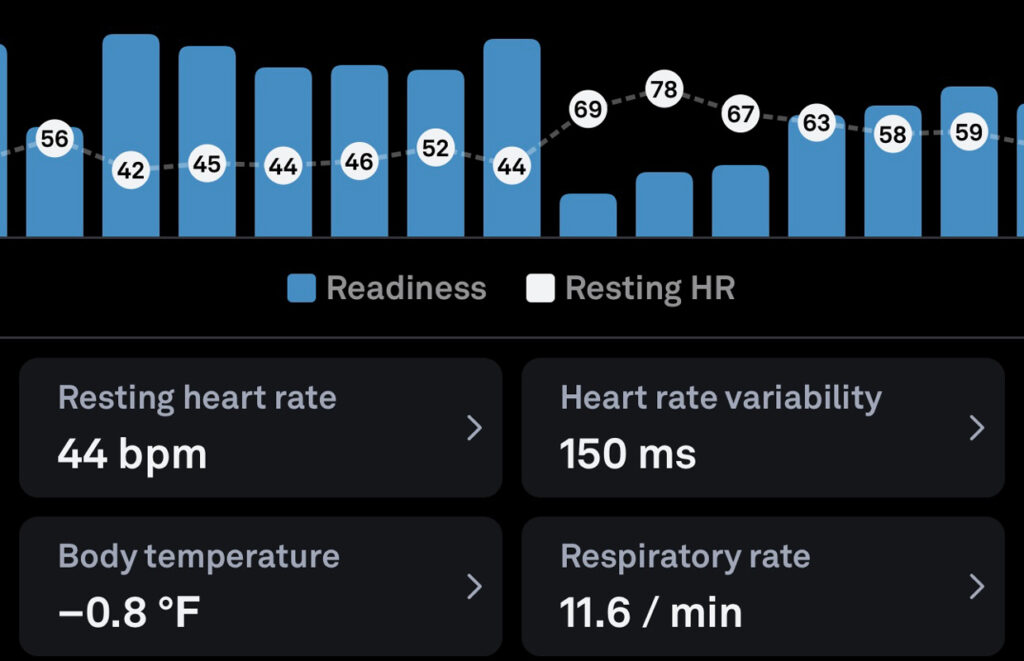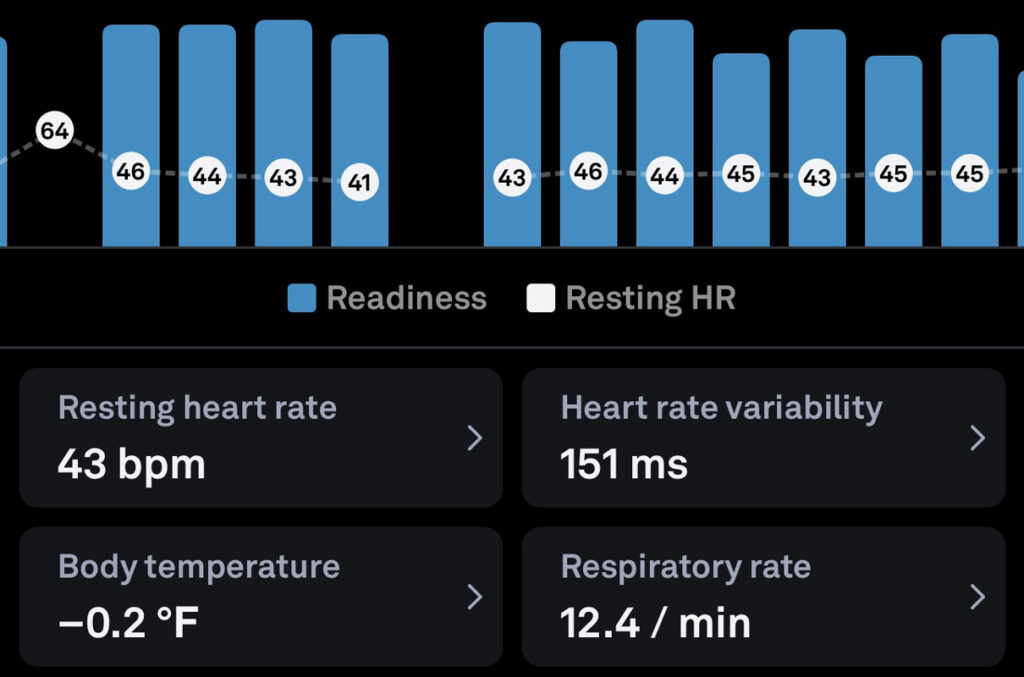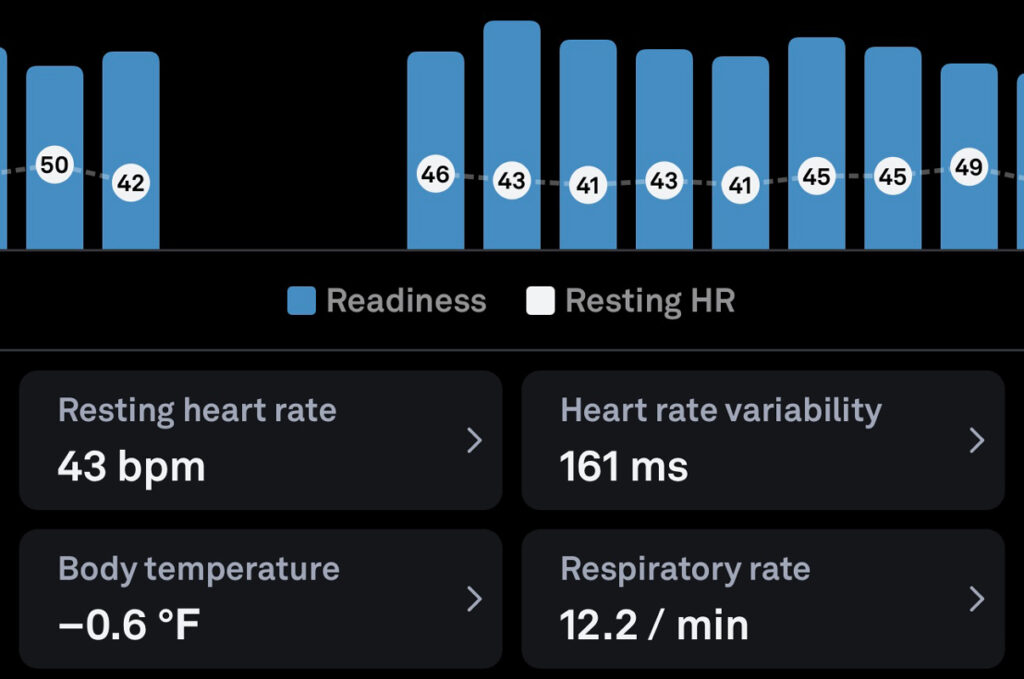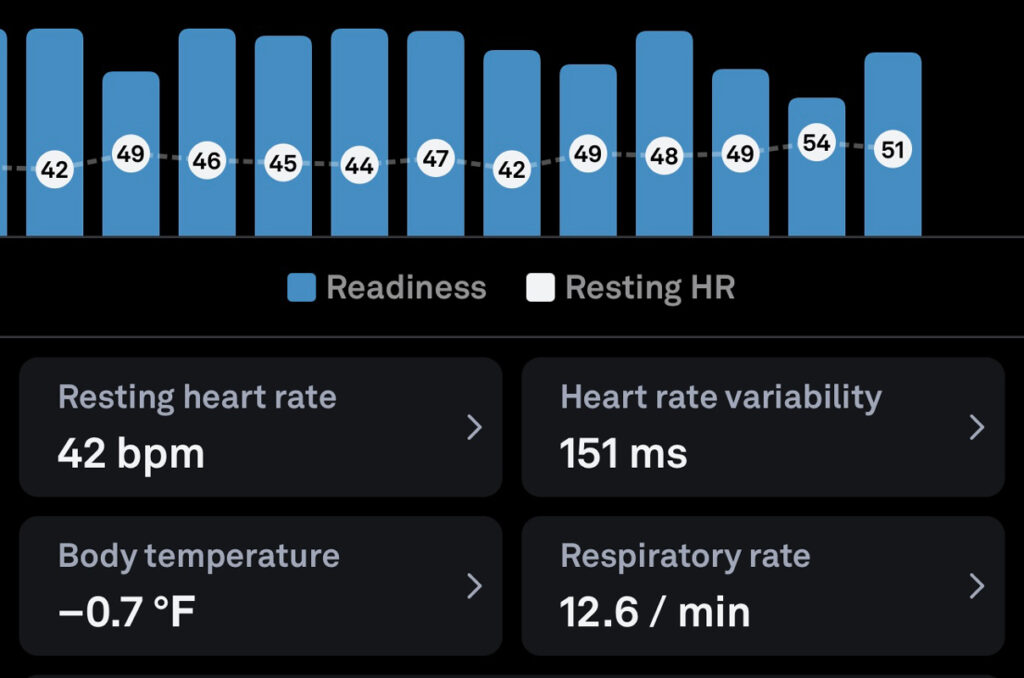HRV Decoded



What HRV Really Measures
So what’s the truth about Heart Rate Variability (HRV)? It’s crucial to understand what it means and why it matters. This is arguably the most significant biomarker for health, happiness, and longevity.
HRV represents the variations in time between each heartbeat, measured in milliseconds.
HRV indicates how your heart is perceiving its ever-changing environment. In essence, HRV is a reflection of your relationship to stress, the health of your nervous system, and your heart’s agility at returning to stability—meaning how well do we get back into relaxation (parasympathetic response) after states of fight or flight (sympathetic reaction).


Why Does HRV Matter?
It offers insight into your emotional and physical presence, gauging how centered you are in your body rather than being caught up in your thoughts (or primal defenses). More than just a heart health metric, HRV is a proxy for your overall well-being and how effectively your body handles stress and perceives its place or sense of belonging and safety in the present moment.
The significance of HRV extends to understanding our biological response to stress. Historically, humans evolved utilizing stress and a fight-or-flight response for survival in the wild, activating this mode for short bursts when facing immediate dangers or impending attack (running from tigers, for example). We may run or hide for a maximum of an hour or two, but once out of danger, we would need to drop back into a relaxed state because we are only built for “short-term stress” not “long-term stress”.
Contrast that with modern life, where we often find ourselves in a constant state of MIND-MADE stress, deadlines, esteem issues, pressures, anxieties, worries, or inundations….kids crying, getting stuck in traffic, staring at our phones, looming deadlines, money pressures, and so on. This keeps our bodies in this fight or flight response for most of the day, which is far longer than the hour or two of stress that our bodies were originally designed to handle. In this fight or flight state, oxygen is being deprived from your vital organs and sent to your extremities, while hormones like adrenaline and cortisol become chronically elevated — both of which strongly contribute to inflammation on a cellular level, metabolism interruption, weight gain, sleep disturbances, etc., which can cumulatively take years off our lives.
Monitoring and managing your HRV is such a powerful tool in improving health and longevity. Emerging clinical research around HRV is proving how this benefits the body’s stress response, overall vitality, and happiness.
What’s a Good HRV Score?
The most common question I get is: “What’s a good HRV score?”
That’s like asking how many licks it takes to get to the center of a Tootsie Pop—the world may never know.
But all jokes aside, comparing HRV scores is like comparing two different languages. There’s no such thing as a wrong language or a smarter language. And there’s no such thing as a bad HRV score.
What REALLY matters is your relationship to your baseline and how you are reacting to it. HRV is a conversation between your heart and your perceived reality—and it’s always changing. Mastering life means we begin to master THE LANGUAGE between the heart and the self.
So what is your HRV baseline and why is it more important than your current HRV score? Think about how much your HRV fluctuates. Given that it’s a measure of your changing environment and the data being taken in from ALL of your senses, that means EVERYTHING you see, hear, feel, taste, smell, and think impacts the variance (which by the way, is changing an average of 40-60 times per minute!) That is a whole lot of data to process.
I define your HRV baseline as your average nightly HRV score over the last 30 days.
This baseline gives you a great snapshot of the recent but ever-changing health of your nervous system. By comparing your daily HRV score with this baseline, you begin listening to your body and its deeper truths and needs. Another way to define HRV is by asking this:






How much are you “IN” your body and “OUT” of your mind?
For instance, if you have an HRV score that’s lower than your baseline, your MIND may be frustrated and think that’s a “bad thing.” When actually, that’s your HEART saying you’re putting more stress on the body than it’s used to and it’s asking for recovery time.
One of the most powerful lessons about HRV is how aware you become of the cultural conditioning around hustling, grinding, success, and productivity — essentially making us feel guilty for needing to take a pause to meditate, rest, or recover. We live in a culture that can make us feel like slowing down is a “bad thing”—yet it’s actually VITAL for higher performance.
This is why I LOVE how there is no standard range for HRV. It’s inviting you to let go of all external comparisons to find the heart’s truest and most personal rhythm. .
When I first checked my HRV it was 32 ms, but after years of tuning in and adjusting my lifestyle to how my heart was communicating with me, my HRV now hovers between 150 ms and 180 ms, and has even hit a high of 245 ms. I’ve also dropped as low as 8 ms following a major shoulder surgery.